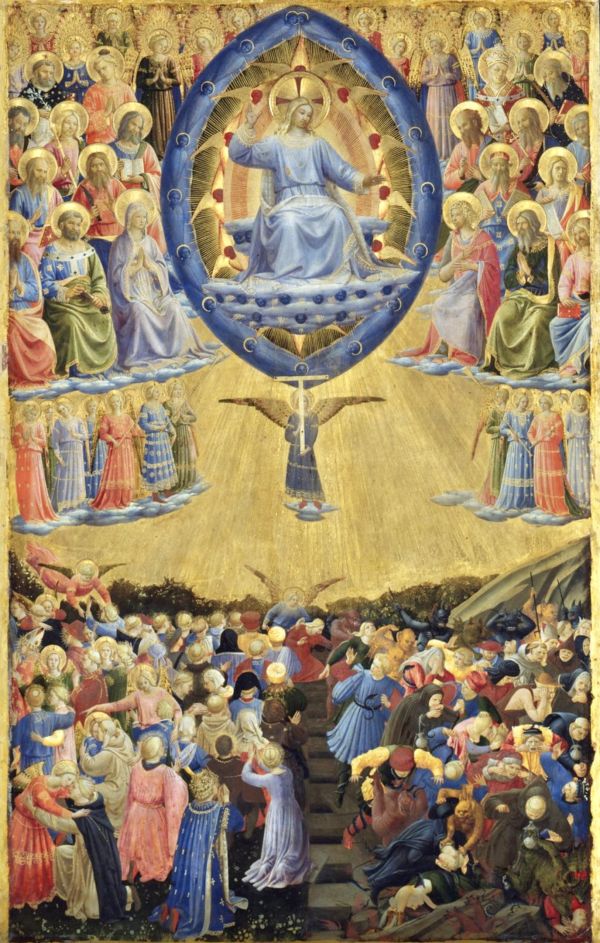(Mt 25:31-46)
The famous Judgment passage presents the ‘coming’ Risen (v.31) as the «Son of man», that is, the authentic and complete development of the divine plan for humanity: his kind of "verdict" follows.
God embraces the limited condition of his creatures, so the behavior that realizes our life doesn’t concern the religious attitude itself, but what we have had towards our fellow men.
In all ancient beliefs, the soul of the deceased was weighed on a notarial basis and judged according to the positive or negative balance.
In the opinion of the rabbis, Divine Mercy intervened in favor only when the good and bad works were balanced.
Jesus doesn’t speak of a Court that proclaims immutable negative sentences on the whole person, but of his humanizing traits.
«Life of the Eternal» (v.46 Greek text) alludes to a kind of life that’s not biological but relational and full of being, which we can already experience.
These are episodes in which our genuine DNA emerged, the Gold that inhabits us: when we knew how to respond to the needs not of God, but of life itself and of our brothers.
These are the moments in which we have been profound listeners to the nature, hope and vocation of all - sensitive to the needs of others. Opportunities that have allowed us to bring the human condition closer to the heavenly one.
Comparing the ‘works’ declared "paradigm" with those of the lists of other religions - even in ancient Egypt - we note the difference in v.36: «I was in prison and you came to me» (vv.39.43).
The difference is remarkable precisely under the criterion of divine Justice: it overlooks forensic considerations, because it creates justice where there is none.
The Father gives life in every case, because he isn’t “good” [as is believed in all devout persuasions] but exclusively good.
The ‘righteous’ - then - didn’t even realize that they had done who knows what: they spontaneously corresponded to their nature as sons (v.39).
They have had sympathy for our ‘flesh’ in its reality - considering it familiar. They have loved with and like Jesus, in Him.
The others, all taken up by formalisms of no interest to God, are surprised that the Father isn’t all there where they had imagined him - locked in the sentences of ordinary justice: «When we saw you [...] in prison and didn't we serve you?» (v. 44).
The vocation to meet leads us spontaneously to transgress divisions: legalistic, of retribution, or prejudice and kind of cult.
This is the eminent Salvation - which nestles in the direct and genuine aspect, not so much in the organized purposes; nor does it have any consistency on the basis of opinions.
We fulfill ourselves in responding to the instinctive Call that arises from our own essential (altruistic) imprint, even the slightest, ill-considered, or eccentric and shaky - not extraordinary.
Without too external conditions, it recognizes itself disseminated in the soul and in the beneficial divinizing fullness of the «Son of man».
Jesus' ultimate Teaching: eminent, global and all-human Judgement; not verdict by concept and account.
Here the Jesus’ identification with the little ones: his Person has a central meaning, which surpasses the ‘distinction’ between friends and outlaws.
The Person is now a different Subject, far richer - solid in itself, but expanding into the divine and human You, even destitute.
[Monday 1st wk. in Lent, March 10, 2025]












